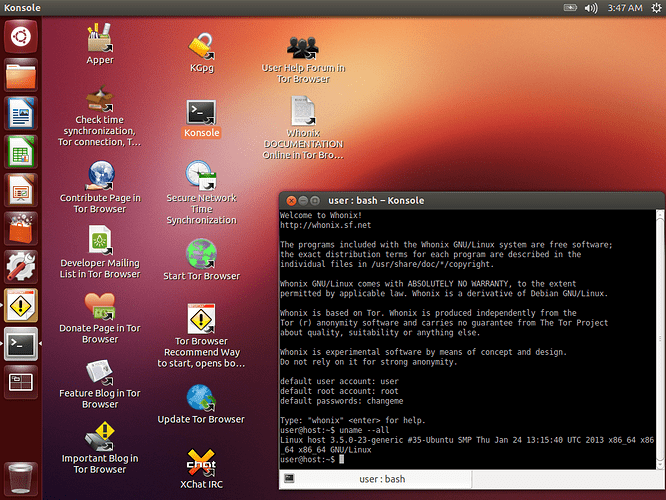First of all thank you for all the effort you put into Whonix. I really like the concept and have been playing around with various things.
To cut to the chase, do you have a step-by-step checklist of how you go from a vanillia version of Debian to a Whonix Gateway and Workstation? I am asking because I would like to see to what extent I could repeat that process starting with Ubuntu. I would give you feedback along the way and, if successful, would be happy to maintain
a personal ppa apt-repository for all the Ubuntu related needs. Of course I also might fail and find the task impossible but perhaps my failure would be helpful knowledge as well. And if successful, I might just take a crack at Fedora as well.
I just sort of view the Whonix concept as something that should transcend solely a KDE version of Debian. That it should be like an apache server where it’s distro-independent and a framework that can be woven into anyone’s distro of choice. (Assuming the distro meets certain basic criteria) So if I could take the process of “Whonix’ing” a couple different distros from scratch I feel perhaps I could help make the Whonix a portable framework.
Or if you think what I just said is insane let me know and I will leave you alone. ![]() But even if that is the case, again I would like to thank you for your efforts.
But even if that is the case, again I would like to thank you for your efforts.
PS. Correct me if I am wrong, but it seems like the build steps may be in these scripts:
